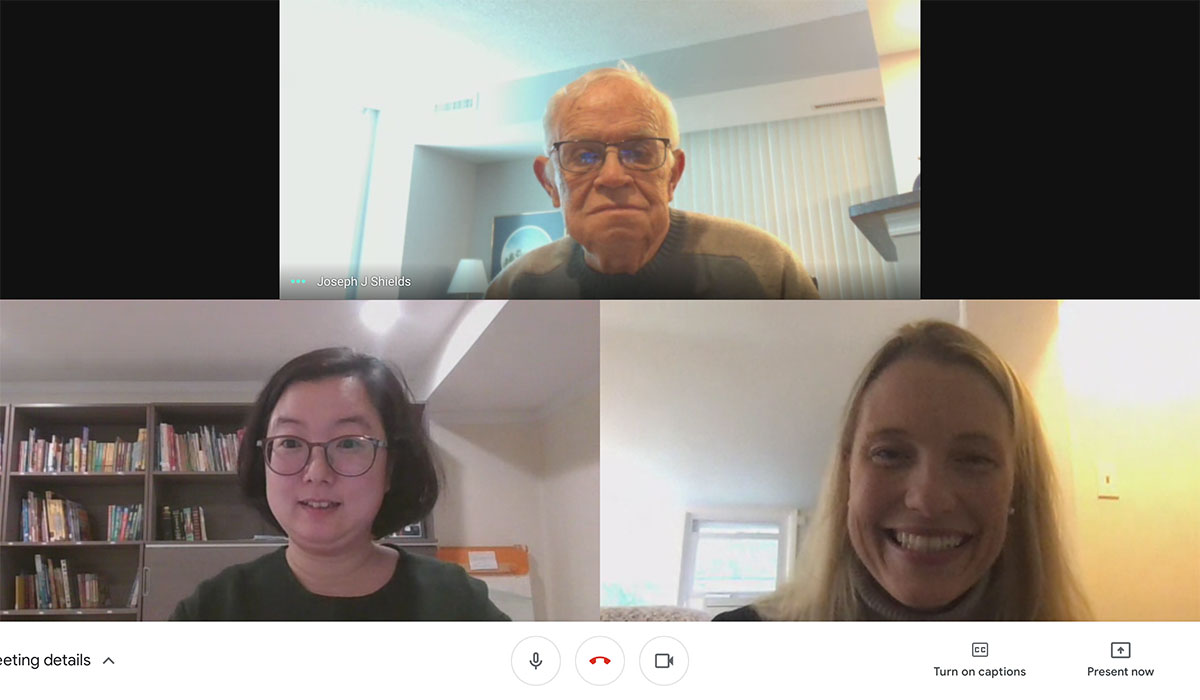

The National Catholic School of Social Service had the first student in Catholic University's history to defend a dissertation where all members participated remotely on Monday, March 23.
Due to the COVID-19 pandemic and social distancing guidelines, the committee panel had to be flexible and figure out the best way to move forward for Ph.D. candidates scheduled to defend their dissertations this semester.
Teresa Murray — a lieutenant colonel in the Army on active duty completing her Ph.D. program as part of a three-year, fully funded Army long-term health education and training program — was the first Ph.D. candidate to defend her dissertation remotely.
“It’s a different level of preparing for the defense on top of remembering all the important facts of the study,” said Eileen Dombo, assistant dean and associate professor of social work, who served as Murray’s major professor. The rest of the panel included the defense chair John Judge, dean and associate professor of the School of Engineering, and secretary Agnes Cave, chair and associate professor of education.
Murray had already completed her work prior to the transition to online classes. “I was disappointed to find out that I would have to conduct the defense of my dissertation online initially, but I was happy to be able to proceed with the defense amidst the current social distancing precautions, even if it was in an unconventional way,” Murray said. “I was also appreciative of the flexibility of my committee members and their commitment to my success. It was neat to find out that I was the first student at Catholic University to do this remotely.”
The committee used Google Meet to conduct Murray’s dissertation. She presented from home. “A positive to being home was that I was able to rehearse prior to the defense in the same space where I would conduct the actual defense. A negative aspect was being worried that my kids or my dog would interrupt,” Murray said.
Murray’s dissertation is titled “The Role of Institutional Betrayal in Predicting Retention Intention Among Active Duty Service Members who have Experienced Sexual Assault."
She studied how experiences that can be perceived as forms of institutional betrayal — like military sexual assault — impact a service member’s decision to stay on active duty. She also studied whether gender moderates the relationship between institutional betrayal and a person’s retention intent.
“I was nervous, but I think I was less nervous than I would have been in person. We didn’t have any technical difficulties, but sometimes the way the website displayed all of the participants on my laptop made it difficult to focus on the individual whose question I was answering,” Murray said. “I couldn’t see everyone’s facial expressions like I would have been able to if the defense had been conducted in person.”
Since then, multiple doctoral candidates have been defending their dissertations remotely and will continue to do so until the social distancing guidelines lessen.
“This moment in University history felt like it was an important triumph in a time where there is a lot of grief for people,” Dombo said. “Things aren’t happening the way they’re supposed to for people. We’re all quarantining and isolating, and it was becoming evident very quickly that it will not be a typical spring for Catholic University. It really felt like an important accomplishment and achievement in light of a very difficult time for people.”